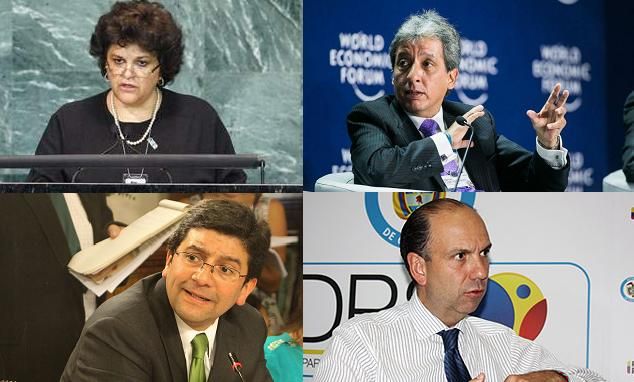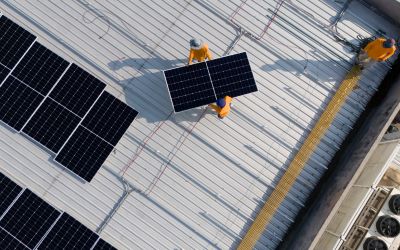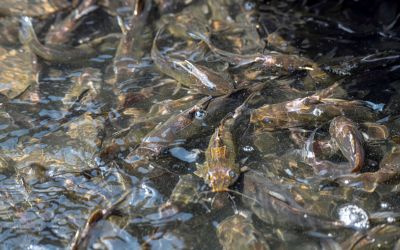UNEP COP20 report to include ministers from Brazil, Chile, Colombia, and Peru
The annual Climate Action report, supported by UNEP, will be launched at COP20 in Lima in December with ministers of environment, heads of key UN bodies and leaders of the world’s top NGO’s confirmed to participate

The annual Climate Action report, supported by UNEP, will be launched at COP20 in Lima in December with ministers of environment, heads of key UN bodies and leaders of the world’s top NGO’s confirmed to participate.
The publication was first launched in Bali for the UN Climate Change Conference in December 2007 (COP13) as a platform for governments, industry, international opinion leaders, distinguished academics and environmentalists to debate the business case for climate change solutions.
The latest edition will be unveiled at the official UNEP Sustainable Innovation Forum 2014 alongside the twentieth session of the Conference of the Parties (COP20).
Climate Action is produced in partnership with the United Nations Environment Programme (UNEP) and their distinguished Executive Director, Achim Steiner, will be writing an introductory feature in the upcoming edition.
Steiner, also Under-Secretary-General of the United Nations, has been at the forefront of initiatives including the 'Climate and Clean Air Coalition' which works to reduce black carbon and methane emissions.
Under Steiner’s leadership UNEP have spearheaded projects in clean energy, sustainable water management and clean transport and have promoted the green economy effectively.
The President of COP20 and Minister of Environment of Peru, Manuel Pulgar-Vidal (pictured top right), will write a key feature in the report to introduce the central themes to be addressed at the UN Climate Change Conference and the efforts underway in Peru to address environmental challenges.
Other environment ministers who will be participating in the report include Izabella Teixeira (pictured top left) of Brazil; Pablo Badenier (pictured bottom left) of Chile; Gabriel Vallejo Lopez (pictured bottom right) of Colombia.
The heads of leading UN bodies will also be making key contributions and will address the focal points in the struggle to mitigate and adapt to climate change.
Dr José Graziano de Silva, Director-General of the Food and Agriculture Organization of the UN (FAO), will highlight the issue of food security and climate-smart agriculture and sustainable farming can combat the threats posed by a changing climate.
The United Nations Development Programme (UNDP) chief, Helen Clark, will also participate in the edition and will look at the UN-REDD programme, deforestation in Latin America, and how sustainable land use and planning can be reconciled with development in the region.
The International Telecommunications Union (ITU) is the United Nations specialised agency for information and communication technologies and their Secretary General, Dr Hamadoun Toure, will be writing a key feature in the report on how ICTs can be instrumental in combating climate change.
The head of the United Nations Human Settlements Programme (UN Habitat), Dr Joan Clos, will address the key role of cities in developing a sustainable future and the policies and projects required to achieve resiliency.
Other key contributors in the Resilient Cities section of the report include Eduardo Paes, Mayor of Rio de Janeiro, and Chair, C40 cities Climate Leadership Group; Erik Jonnaert, Secretary General, European Automobile Manufacturers' Association (ACEA); Rob de Jong, Head of the Transport Unit, at UNEP’s Division of Technology Industry and Economics.
Confirmed partners of the report include the World Resources Institute (WRI) and the World Green Building Council (WorldGBC), and their respective heads, Dr Andrew Steer and Jane Henley, will be participating with important articles.
Climate finance will be a central theme at the COP20 negotiations with the Finance Ministers of all UN member states expected to attend and debate the green economy and the future of finance for developing nations.
Finance will also be a focus of the report and will include contributions from Héla Cheikhrouhou, Executive Director, Green Climate Fund (GCF); David Wilk, lead climate change specialist, Inter-American Development Bank (IDB); Peter Bakker, President, World Business Council for Sustainable Development (WBCSD) and Takehiko Nakao, President, Asian Development Bank (ADB).
With energy security a growing issue in the environmental debate, the Chair of World Energy Council (WEC), Marie-José Nadeau, will look at the ‘energy trilemma’ in the build up to the expected definitive agreement at COP21 in Paris next year.
Deforestation, illegal logging, forest degradation, conservation and the sustainable management of forests were all key themes at June’s United Nations Environment Assembly (UNEA) and the report will include the participation of Peter Holmgren, Director General of the Center for International Forestry Research (CIFOR).
Jukka Uosukainen, former Special Envoy for Climate Change for the Government of Finland and now Director of UNEP’s Climate Technology Centre and Network (CTCN) will highlight the importance of promoting accelerated, diversified and scaled-up transfer of environmentally sound technologies for climate change mitigation and adaptation.
Mark Radka and John Christensen, of UNEP DTIE will co-author a feature in the report that will focus on the emissions GAP, the vast potential of energy efficiency and the recent Sustainable Energy for All (SE4ALL) initiative led by the UN Secretary-General and the President of the World Bank.






